Check out what we’re reading and what we’re looking forward to this February!
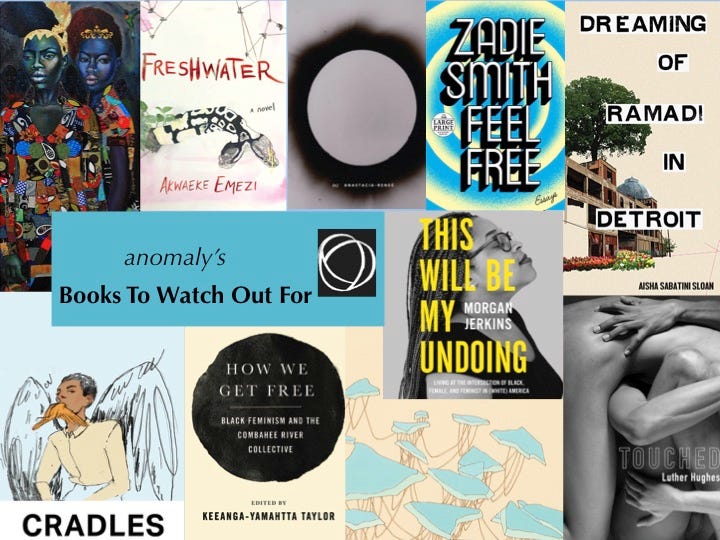
1. TOUCHED by Luther Hughes
there’s abuse. & there’s abuse.
first, the hands of the thing.
the nailed digits. everything an aperture. everything
a dead animal. the latter.
touching. or grazing.
the couch-skirt against concrete.
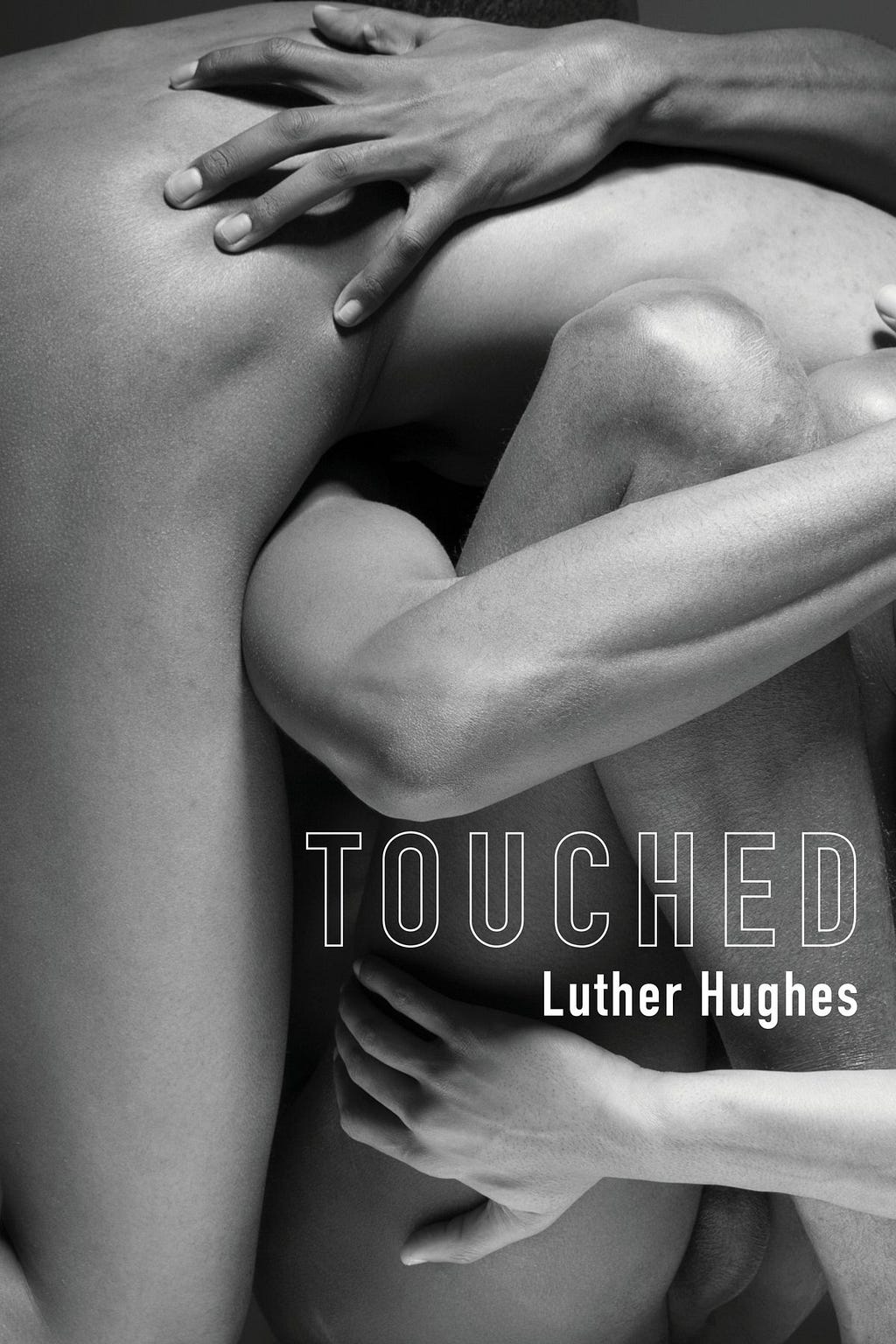
The Gist:
An explosive, intimate debut chapbook from the founder of the Shade journal.
The Buzz:
“I trust Luther Hughes with the body. In Touched, Hughes is careful with it, he handles the body as deliberate and tender as one would a poem. The bodies here, be they black, queer, animal, living, or recovering, are given an authority only possible in poems, and only executed right in the handles of a capable poem. Hughes is more than capable though…I didn’t know I was waiting on someone to say all these things until I opened them up and lived them. And it took living to make these poems. And it is our pleasure to live in them now. Touched is only one thing this book will leave you. Let it leave you these ways also: awed, floored, stunned, healed, shaken, still, better, clean, ready to read it again.” — Danez Smith, author of Don’t Call Us Dead
Get it from: Sibling Rivalry Press [Read more]
2. DREAMING OF RAMADI IN DETROIT by Aisha Sabatini Sloan
For my family, Detroit has always been inevitable. It is the place we have been heading back to my entire life. My parents recall White Castle hamburgers and Coney Island hot dogs as if they were the secret to immortality. The city has the beckoning power of a black hole or the Italian countryside or a castle. There is no way to explain our wiring to someone whose fairytale has always ended somewhere like Florida.
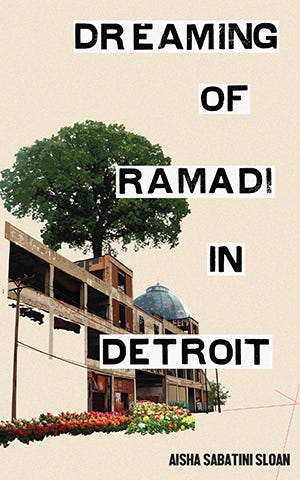
The Gist:
Sloan’s lyric essay collection won the 1913 Open Prose Contest, which was judged by Maggie Nelson. Porous memories unspool formative childhood experiences and encounters with news reports, mediating death and self/collective awakening.
The Buzz:
“Dreaming, exploring, probing, confessing, Aisha Sabatini Sloan is always on the move. She crosses borders, turns fixed states of mind and heart into fresh sites of possibility and mystery. Those vast charged realities — race, class, gender, geography — become particular here, casting light and shadow on each other in startling ways. This is a luminous book.”— Margo Jefferson, author of Negroland
Get it from: 1913 Press [Read more]
3. HOW WE GET FREE: BLACK FEMINISM AND THE COMBAHEE RIVER COLLECTIVE edited by Keeanga-Yamahtta Taylor
But “identity politics” was not just about who you were; it was also about what you could do to confront the oppression you were facing… Identity politics became a way that those suffering that oppression could become politically active to confront it. This meant taking up political campaigns not just to ensure the liberation of other people but also to guarantee your own freedom.

The Gist:
Forty years ago, the revolutionary Combahee River Collective declared: “If Black women were free, it would mean that everyone else would have to be free.” This statement also introduced the concepts “identity politics” and “interlocking oppression” to the world and offered a roadmap for political organizing. Taylor’s book gathers reflections from Barbara Smith, Alicia Garza, Demita Frazier, Beverly Smith, and Barbara Ransby on the legacy of Black feminism and the Combahee River Collective Statement.
The Buzz:
“This new collection of a four-decades-old text reminds us that black women have long known that America’s destiny is inseparable from how it treats them and the nation ignores this truth at its peril.” — The New York Review of Books
Get it from: Haymarket Books
4. FRESHWATER by Akwaeke Emezi
Disturbed, she looked for a pottu and found one, a dark circle of velvet black, a portable third eye, and she affixed it to the baby’s forehead, on that smooth expanse of brand-new skin. A sun to repel the evil eye and thwart the intentions of wicked people who could coo at a child and then curse it under their breath.

The Gist:
Emezi’s debut novel follows Ada, a young Nigerian woman whose fractured self is inhabited by Ogbanje — in Igbo culture, an evil spirit which curses a family.
The Buzz: “With this stunning debut, Akwaeke Emezi has blessed us with nothing less than a masterpiece. Freshwater is a journey of loss and reconciliation, home and heartbreak, and ultimately a survivor’s guide to harmonizing spirit and flesh. Quite simply a gorgeous, elegant, and brutal work of truthtelling. To repeat: a fucking masterpiece.” — Daniel José Older, author of Shadowshaper
Get it from: Grove Press
5. THIS WILL BE MY UNDOING by Morgan Jerkins
I couldn’t make the team because I was not human. And when I looked at myself in the mirror, when I kissed my mother good night, this feeling of being the monkey, nonhuman, haunted me. I should’ve known my place. I should’ve known that when I was around my black friends, I was who I was, and when I was in a white space, I wasn’t afforded humanity. And maybe that was what I was really trying out for, not a cheerleading squad, a chance to be a person.

The Gist:
This debut collection of compelling essays takes on pop culture and identity. Her stories— from feeling excluded at cheerleading tryouts to the privilege of studying foreign languages at Princeton to her complicity in gentrification in Harlem — give complicated dimension to the question of what it means to be a young Black woman.
The Buzz:
“In Morgan Jerkins’s remarkable debut essay collection, This Will Be My Undoing, she is a deft cartographer of black girlhood and womanhood. From one essay to the next, Jerkins weaves the personal with the public and political in compelling, challenging ways. Her prodigious intellect and curiosity are on full display throughout this outstanding collection. The last line of the book reads, ‘You should’ve known I was coming,’ and indeed, in this, too, Jerkins is prescient. With this collection, she shows us that she is unforgettably here, a writer to be reckoned with.” — Roxane Gay
Get it from: Harper Perennial [Read more]
6. (V.) by Anastacia-Reneé
you decide you will trust — you will lay your little hands
on your community
& make change
& that is the only thing
that make sense when 9 people woke up
& prayed
& 9 people are now being prayed (for)
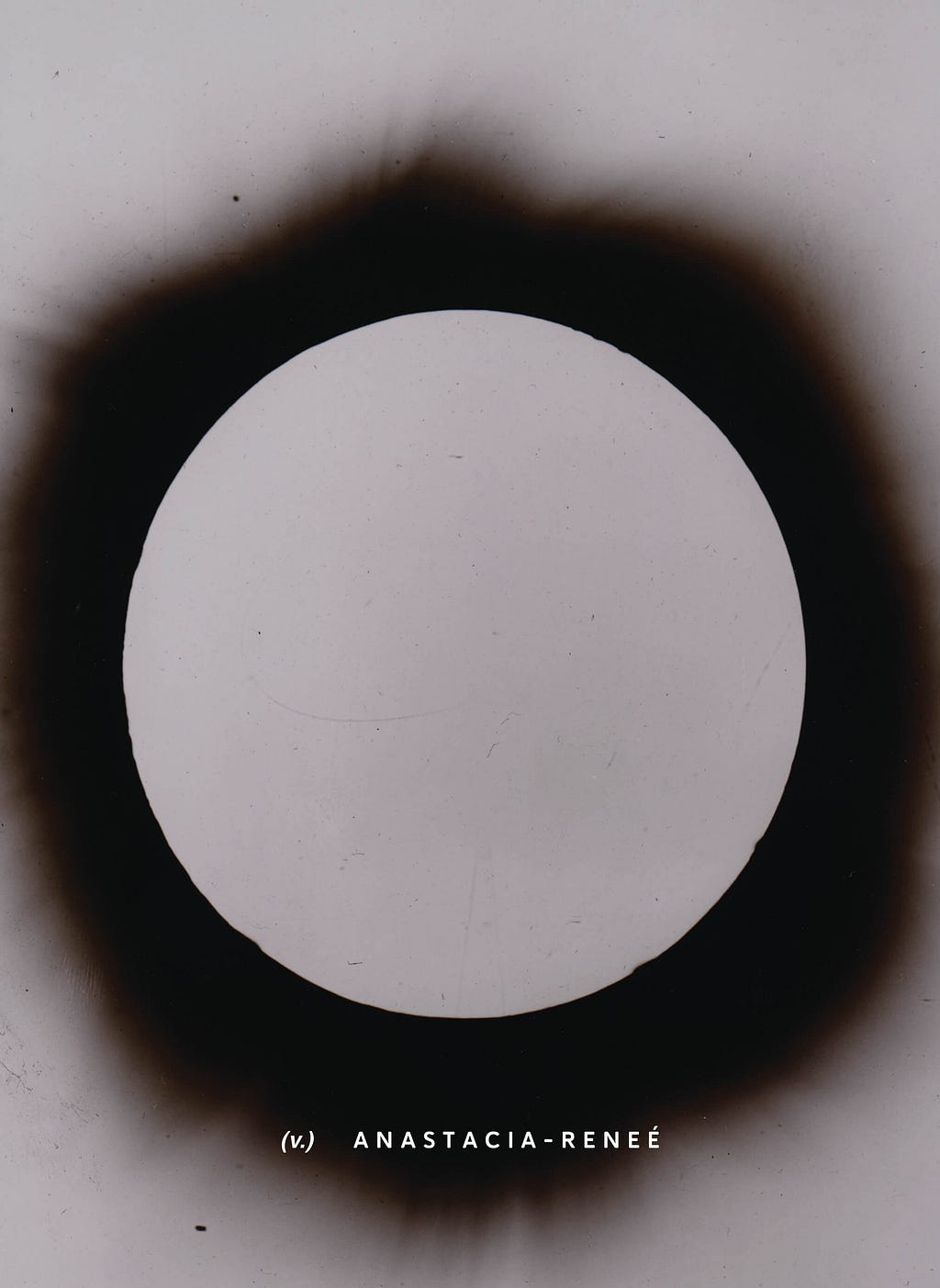
The Gist:
One of three books Anastacia-Reneé has published this year (!), (v.) responds to the call of Ntozake Shange’s landmark for colored girls who have considered suicide when the rainbow is enuf, seeking beauty in the intersection of Blackness, queerness, and womanhood.
The Buzz:
“Radical and rooted in Black cultural history, experimental yet never losing a responsibility to language, Anastacia-Reneé’s (v.) deserves every stage poetry can give it...There are no flat-dada nihilist victories here, no globetrotting-cad behaviors passed off personal growth. Instead, the collection’s power lies both in the speaker’s joy and in her thorough accounting of the price she and so many other black women pay for being human in America. Her style thus extends that rarest of poetic forms: radical honesty.” —Robert Lashley, author of The Homeboy Songs
Get it from: Gramma
7. HOUSES OF RAVICKA by Renee Gladman
I was trying to tell you what it means to see a city that itself sees, that looks out of its structures toward some imagined place, some activating force. We have a whole science that says the buildings of Ravicka are on the move — the houses, the buildings — and although the science doesn’t say it’s because the houses see that they move, it’s clear that they move because they see. Otherwise, we wouldn’t be studying the migration of buildings but rather the behavior of some further exterior force.
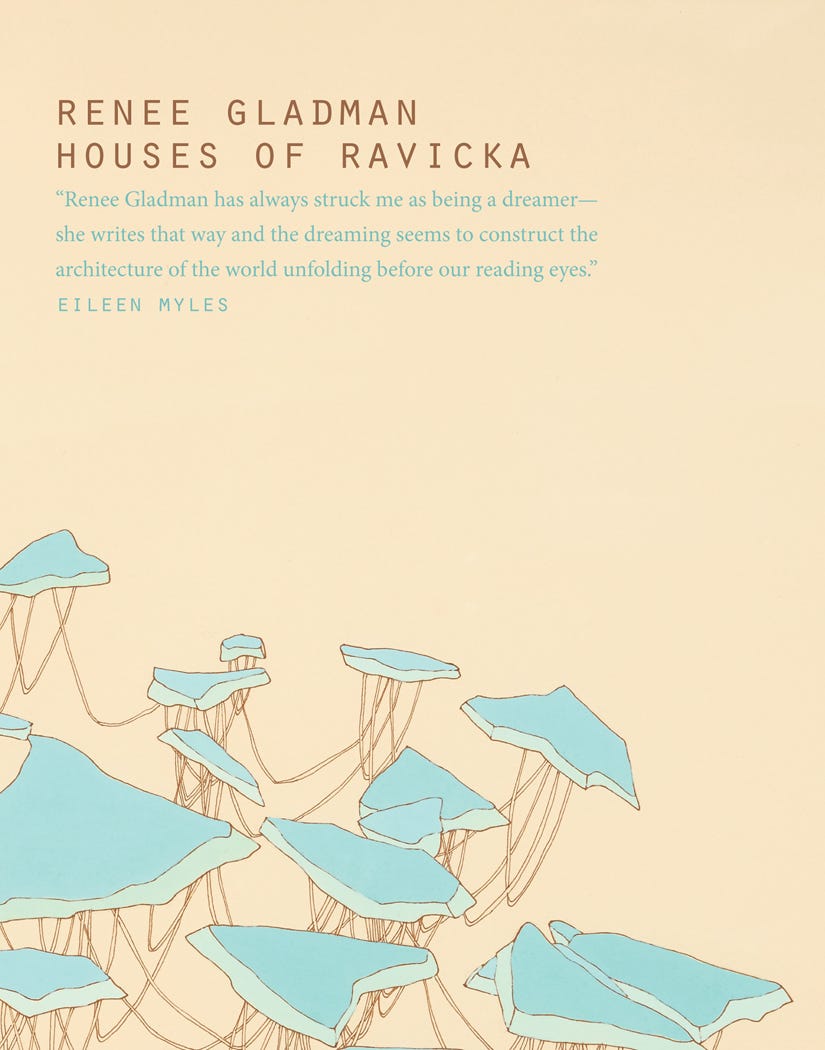
The Gist:
Gladman’s fourth book about the ever-shifting, imaginary city of Ravicka is as surreal and ravishing as ever.
The Buzz:
“Little can prepare you for the experience of reading Renee Gladman’s Ravickian quartet and encountering the oddity, humour, and singular intelligence of her mind… In this world, almost every protagonist is a writer — if writing goes beyond the traditional modes of authorship and encompasses drawing, gesture, and the trajectory of a body through a city. Ravicka is a city that is itself written — a lucid fiction, born of a language game and populated by subjects who must write themselves into being.” — The White Review
Get it from: Dorothy, a publishing project [Read more]
8. SONS OF ACHILLES by Nabila Lovelace
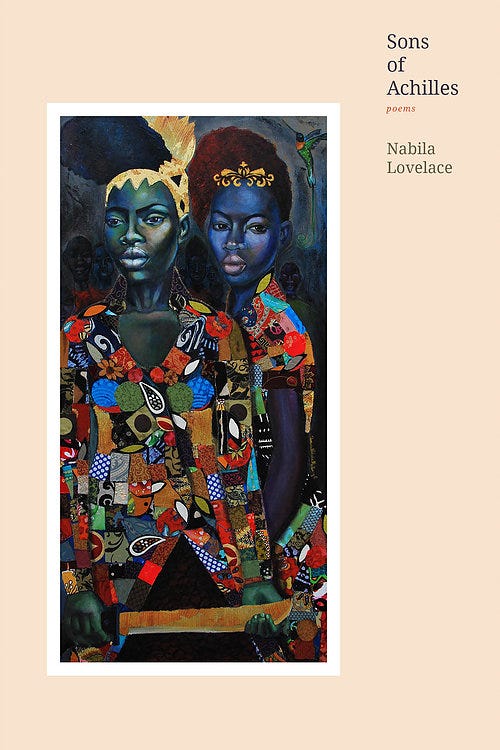
Collective memory
is a hell of a snag.
My memory
is a long Uhaul
down Memorial Drive
disobeying traffic
I am the largest
on this paved liquer,
and even the smallest
child burnt does not
stop the maniacal laugh.
The Gist:
This debut poetry collection from a poetry editor for The Offing draws on myth to consider lineages of violence and intimacy.
Get it from: YesYes Books
9. CRADLES by Fisayo Adeyeye

The Gist:
Adeyeye’s first full-length book questions mythologies of safety, violence, desire, and angels.
The Buzz:
“Cradles is an absolutely stunning first collection of poems. Each individual lyric in this book swelters & begs and demands and attempts to make sense from the impossible. Adeyeye’s language is formally deft, investigatory, and ghostly punching, writing ‘There were no more metaphors for the violence of men.’ Get your hands on this book, get your hands shook.”– sam sax, author of Madness
Get it from: Nomadic Press
10. FEEL FREE by Zadie Smith
I might turn to one Yiadom-Boakye painting in particular, Mercy over Matter, in which a man holds a bird on his finger. The undersong here is under plumage: those jewel-like greens and purples and reds you can spot beneath the oil-slick surface of certain black-feathered birds. The man’s jacket magically displays this same underplumage; so does his skin; so does his bird. He is a black man. He is often thought of as a nothing, a cipher. But he has layers upon layers upon layers.

The Gist:
Popular novelist and essayist Zadie Smith gathers probing cultural criticism and lyrical personal writings, including some of her most famous essays, like “Find Your Beach” and “Joy,” for her buoyant and wide-reaching second essay collection. Smith soars at her best as she pulls out layers upon layers of undersong.
The Buzz: “It is exquisitely pleasurable to observe Smith thinking on the page, not least because we have no idea where she’s headed…At times she reminds me of a musician jamming, or one of those enviable cooks who can take five random ingredients lying around the kitchen and whip up a meal. Her loose, roving essays cohere because they are rooted in her sensibility.” — NY Times Book Revie
Get it from: Penguin Press
Books To Watch Out For — February 2018 was originally published in Anomaly on Medium, where people are continuing the conversation by highlighting and responding to this story.
